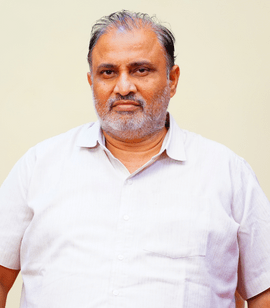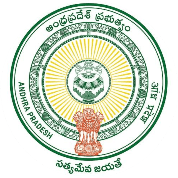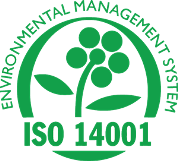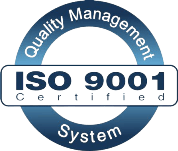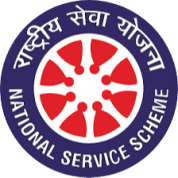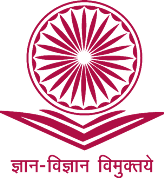Qualification
M.Sc., Ph.D.,
Work Experience (PDF/Teaching, etc.)
1. Nov 2009 to Oct 2010 : Visiting Faculty : Department SENFIMZO Faculty of Agriculture Palermo, Italy. Field of Research : Application of doubled haploid technology for genetic improvement of fruit crops.
2. Jan 2003 to June 2003 : Postdoctoral Fellow : Institute of Botany, Academia Sinica, Taipei, Taiwan, ROC. Field of Research : Molecular biology of senescence.
3. Sep 2000 to Oct 2000 : Visiting Research Fellow : Faculty of Horticulture, Chiba University, Matsudo, Japan. Field of Research : Photoautotrophic micropropagation.
4. Jan 1997 to Dec 1998 : Postdoctoral Fellow : CREBS, CRP-Centre Universitaire, Luxembourg. Field of Research : Plant Biotechnology.
Research Grants
1. Micropropagation Technology Park sponsored by Department of Biotechnology (DBT), Ministry of Science and Technology, Government of India. (Jan, 1999-Jan 2004). (As a Project Team member).
2. Developing commercial micropropagation protocol of walnut (Juglans regia L) sponsored by Agriculture and Processed Food Products Export Development Authority (APEDA), Ministry of Commerce, Government of India. (Feb 2000-Jan 2004) (As a Principal Investigator).
3. Introduction of new table and processing quality Citrus cultivars in Punjab sponsored by Punjab Agri Exports Corporation Ltd. (PAGREXCO) and Ministry of Food and Processing Industries (MFPI), Government of India. (Mar 2002-Jan 2004) (As a Principal Investigator).
4. Tissue culture and salinity in Paulownia fortunei sponsored by Department of Science and Technology (DST), Ministry of Science and Technology, Government of India. (Mar 2002-Jan 2003) (As a Principal Investigator).
5. Propagation, multiplication, conservation and commercialization of germplasm of selected medicinal, ornamental and economically important species. Sponsored by Department of Biotechnology (DBT), Ministry of Science and Technology, Government of India. (Jan 2004-Apr 2005) (As a Co-Principal Investigator).
6. Survey, collection and evaluation of plant wealth in the Indo-Burma Biodiversity region. Sponsored by Department of Biotechnology (DBT), Ministry of Science and Technology, Government of India. (Jan 2004-Apr 2005) (As a Co-Principal Investigator).
7. Biofuel production from hydrocarbon yielding plants sponsored by Department of Science and Technology (DST), Ministry of Science and Technology, Government of India. 23.0 Lacks (Apr 2007-May 2011) (Principal Investigator).
8. Biotechnology interventions for production of androgenic haploids to speed and support breeding of ginger. Awarded by Department of Biotechnology, Government of India under NER-TWINING program.Rs. 60. 00 Lacks (Principal Collaborator).
9. Gametic embryogenesis n popuar and commercial cultivars of mango awarded by University Grants Commission, New Delhi. Rs. 12 lacks (Principal Invetsigator).
10. Proteomic analysis of drought stress tolerance in finger millet (Eleusine corcana L.) awarded by DST’s Science & Engineering Research Board (DST-SERB) major research project. (Principal Investigator).
Research Students (Ph.D Awarded / Working)
1. Dr. Diego Padoa: Gametic embryogenesis in fruit crops. University of Palermo, Palermo, Italy (2011).
2. Dr. S. Pradeep Kumar. Biofuel production from Euphorbia antiquorum. Yogi Vemana University, Kadapa. India (2014).
3. Dr. B. Rajeshwari Biofuel production from Euphorbia caducifolia. Yogi Vemana University, Kadapa. India (2014).
4. Mrs. G. Vijaya Lakshmi Biotechnology tools for the production of gynogenic haploids to speed and support breeding in K.P. Onion. Yogi Vemana University, Kadapa. India (2013) (Under progress).
5. Mr. M. Muni Raja Yogi Vemana University, Kadapa. India (2015) (Under progress).
6. Mr. M. Lakshmipathi Naik Proteomic analysis of drought stress tolerance in finger millet (Eleusine corcana L.) Yogi Vemana University, Kadapa. India (2016) (Under progress).
Awards and Achievements
1. Graduate Aptitude Test in Engineering (GATE) (1992).
2. Junior Research Fellowship of University Grants Commission (UGC), (1992).
3. National Eligibility Test (NET) (1995).
4. Senior Research Fellowship of Council of Scientific and Industrial Research (CSIR), (1996).
5. Postdoctoral Fellowship awarded by The Ministère des Affaires Etrangèrs, du Commerce Extèrieur et de la Coopèration, Luxembourgeois, Luxembourg in 1997.
6. Short-term visiting fellowship awarded by Japanese Society for the promotion of Science, Japan in 2000.
7. Young Scientist visiting Fellowship by International Association for Plant Tissue Culture & Biotechnology (IAPTC & B) in 2002.
8. Young Scientist award by Department of Science and Technology, Government of India, in 2002.
9. Postdoctoral Fellowship awarded by National Science Council, Taiwan in 2003.
10. Visiting research fellowship for one year by M.I.UR (BR10820AMC), Italy in 2010.
Publications (Books, Patents, Collaborations, etc)
Journal Publications1. Sha Valli Khan PS, Prakash E and Rao KR (1997). In vitro micropropagation of an endemic fruit tree Syzygium alternifoliurn (Wight) Walp. Plant Cell Reports, 16:325 -328.
2. Sha Valli Khan PS, Hausman JF and Rao KR (1999). In vitro morphogenesis and plantlet regeneration from seeds of Syzygium alternifolium. Biologia Plantarum. 42:177-184.
3. Prakash E, Sha Valli Khan PS, Sairam Reddy P and Rao KR (1999). Regeneration of plants from seed-derived callus of Hybanthus enneaspermus L .Muell, a rare ethanobotanical herb. Plant Cell Reports.18: 873-878.
4. Sha Valli Khan PS, Kozai T, Nguyen QT, and Dhawan V (2002). Growth and photosynthetic characteristics of Eucalyptus tereticornis Smith in relation to photoautotrophic micropropagation. Plant Cell, Tissue and Organ Culture. 71: 141-146.
5. Kishor RK, Sha Valli Khan PS and G.J. Sharma. (2006). Hybridization and in vitro culture of Ascocenda ‘Kangla’. Scientia Horticulturae. 11: 329-335.
6. Prakash E, Sha Valli Khan PS, Srinivasa Rao TJV and Meru ES (2006). Micropropagation of redsanders (Pterocarpus santalinus L.) using mature nodal explants. J. Forest Research 11: 329-335.
7. Sha Valli Khan PS, Hausman JF, Renaut J and Hoffmann L (2007). Current initiatives in proteomic approaches for the analysis of salt tolerance. Current Science. 93: 1-11.
8. Oufir M, Schulz N, Sha Valli KhanP.S., Wilhelm E, Burg k, Huasman JF, Hoffmann L and Guiganard C (2009).Simultaneous measurement of proline and related compounds in oak leaves by high performance ligand-exchange chromatography and electrospray ionization mass spectrometry for environmental stress studies. J. Chormatogrpahy A: 1216: 1094-1099.
9. S. Subbarayudu, B. Shankar Naik, H. Sunitibala Devi, B.S. Bhau, P.S. Sha valli Khan (2014). Microsporogenesis and pollen formation in Zingiber officinale Roscoe. Plant Systematics and Evolution. 300: 619-632.
10. Padoan, D, Mossad, A, Chinacone B, Germana MA, Sha Valli Khan (2013). Ploidy levels in Citrus clementine affects leaf morphology, stomatal density and water content. Theoretical and Experimental Plant Physiology. 25: 283-290.
Any Specific Inclusions (Books, Patents, Collaborations etc.)
1. Acclimatization of horticultural crops: Comprehensive Micropropogation of horticultural crops (eds. R. Chandra and Mishra M), International book depot, Luknow, India.
2. P.S. Sha Valli Khan and. P. Osman Basha (2015). Salt stress and leguminous crops. In: Legumes and Environmental Stress: yield, improvement and adaptations. John Wiley, U.K.
3. Sha Valli Khan P.S. Nagamallaiah GV., Sergeant K and Hausman JF (2015). Proteomic approaches for the analysis of salt tolerance in plants. Today and Tomarrows Publishers, New Delhi.
4. P.S. Sha Valli Khan, P. Osman Basha, Vijaya Lakshmi G, Muniraja M, Sergeant K, and Hausman J. F. (2016) Proteomic analysis of food crops under abiotic stresses in the context of climate change. Plant-Environment Interaction Responses and Approaches to migrate Stress Mohammed Mahgoub Azooz and Parvaiz Ahmad. John Wiley & Sons, Ltd.
Conference / Symposia
Attended 30, Organized 5, Best 5, Total 40.
 Vemanapuram, Kadapa, Y.S.R Kadapa-516005, A.P., India
Vemanapuram, Kadapa, Y.S.R Kadapa-516005, A.P., India itcell@yvu.edu.in
itcell@yvu.edu.in


